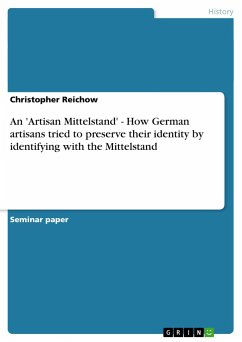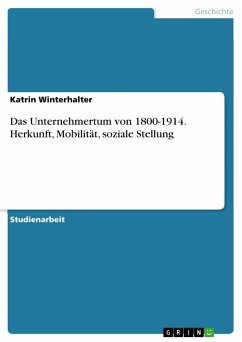Seminar paper from the year 2011 in the subject History Europe - Other Countries - Modern Times, Absolutism, Industrialization, grade: 1,0, University of Oregon, language: English, abstract: Germany's handicrafts and their institutional legacy highly influenced the social-economic development of their country. Their knowledge, know-how, and skills were important factors for Germany's advancement to an economic powerhouse in the late nineteenth-century. But despite economic successes, an "anti-modern" attitude toward the new capitalist industry and its adherent working-class emerged during the last third of the nineteenth-century among the German artisans. This paper will show that the affiliation as well as the opposition of the German artisans toward other social and economic groups expressed a specific identity, both in social and economic terms. The core of the analysis will lay on the second half of the nine-teenth century and especially on the time period between the unification of Germany in 1871 and its short period of economic boom (Gründerzeit) and the end of the Great Depression in 1897. A subjective focus will reveal politically expressed differences in terms of values and preferences to the rising new economic order. Furthermore, it will be shown that the emerging working-class and their growing bond with journeymen compelled the economically prosper-ous artisans to reconsider their economic position within the German economy. Their redefinition as the Mittelstand was the answer to this development.
Hinweis: Dieser Artikel kann nur an eine deutsche Lieferadresse ausgeliefert werden.
Hinweis: Dieser Artikel kann nur an eine deutsche Lieferadresse ausgeliefert werden.








